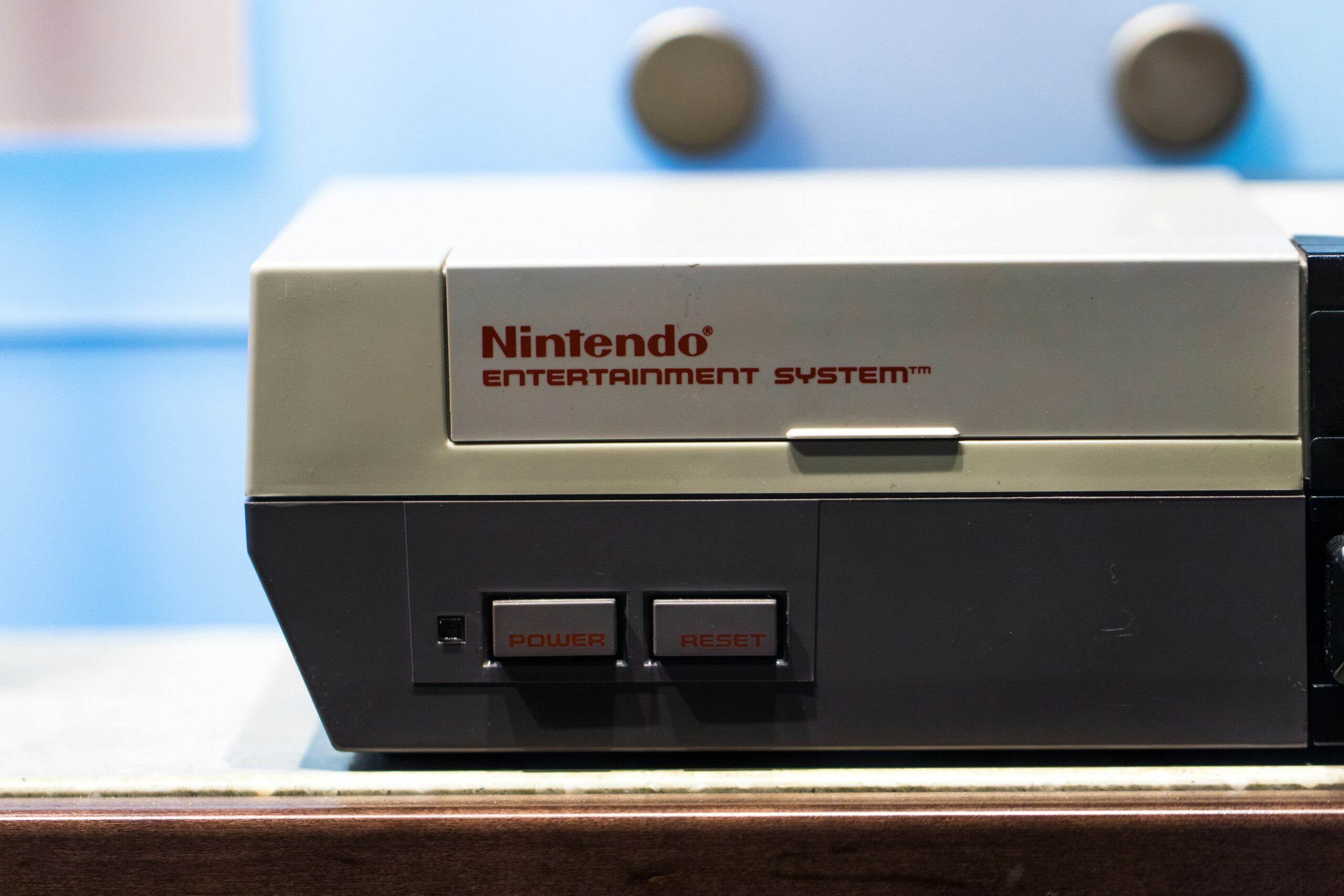In the annals of video game history, few consoles have left an indelible mark quite like the Nintendo Entertainment System (NES). Since its inception in the mid-1980s, the NES has not only revitalized the video game industry but also transformed the landscape of entertainment and popular culture. This article delves into the legacy of the NES, unveiling the console’s enduring charm, its pivotal role in shaping the video game industry, and how its influence extends far beyond the realm of gaming.
Unpacking Nintendo’s Timeless Treasure
The Nintendo Entertainment System, a beacon of innovation and nostalgia, remains a significant chapter in the history of video gaming. Launched at a time when the video game industry was in dire straits, the NES was Nintendo’s bold attempt to revive a faltering market. Its success was not just a victory for Nintendo but a resurrection of the entire industry. The console’s design, a sleek gray box accompanied by a robust cartridge system, was a departure from the norm, symbolizing reliability and user-friendliness. The NES introduced a standardized model for game development and publication that became the blueprint for future consoles. Its controller, with a simple yet effective layout, redefined game interaction, setting a standard still evident in today’s gaming devices.
The Dawn of the Nintendo Entertainment System
The genesis of the NES can be traced back to 1983, a period often referred to as the video game crash. Amidst this backdrop of uncertainty, Nintendo launched the Famicom in Japan, a console that would later be rebranded as the NES for the Western market. The system’s North American release in 1985 was a gamble, but one that paid off handsomely. Nintendo’s strategic approach, including the creation of the Nintendo Seal of Quality, ensured a steady flow of high-quality games. This strategy not only salvaged the video game market but also set the stage for the NES to become a household name across the globe.
The Games That Shaped a Generation
The NES library is a treasure trove of titles that have become synonymous with the golden age of gaming. Classics like "The Legend of Zelda," "Metroid," "Super Mario Bros.," and "Mega Man" not only defined the action-adventure and platforming genres but also established enduring franchises. These games introduced narrative depth, expansive worlds, and innovative gameplay mechanics. The impact of these titles was profound, crafting a gaming lexicon that is still referenced and revered by developers and players alike.
How Super Mario Became a Household Name
"Super Mario Bros.," perhaps the most iconic title in the NES catalog, was a masterclass in design and playability. The brainchild of Shigeru Miyamoto, this game catapulted Mario from a simple arcade character to a global superstar. Its success laid the groundwork for a franchise that would span decades and media, from games to movies and merchandise. The game’s inventive levels, memorable music, and precise controls became the standard against which all future platformers would be judged.
NES and the Revolution of Home Entertainment
Before the NES, video games were largely confined to arcades and viewed as a novelty rather than a mainstay of home entertainment. The introduction of the NES changed that narrative, bringing video games into the living room and making gaming a shared family experience. Its success also paved the way for other media to be integrated into gaming, including the incorporation of movie franchises into video games. This convergence of gaming and other entertainment forms was revolutionary, creating a new paradigm for multimedia content.
The Architects Behind Nintendo’s Success
The triumph of the NES can be attributed to a group of visionary individuals at Nintendo. Figures like Shigeru Miyamoto, Gunpei Yokoi, and Hiroshi Yamauchi were instrumental in the development and success of the NES and its game library. Miyamoto’s creative genius gave birth to many of Nintendo’s flagship titles, while Yokoi’s innovative approach to hardware design contributed significantly to the console’s usability and appeal. Under Yamauchi’s leadership, Nintendo navigated the challenges of the video game market with strategic acumen, establishing the NES as a dominant force in the industry.
The Global Impact of the NES Phenomenon
The NES’s influence extended far beyond the shores of Japan and North America, igniting a global passion for video games. Its international success helped establish video gaming as a legitimate form of entertainment worldwide, transcending cultural and linguistic barriers. The console’s popularity also fostered a burgeoning export market for video games, contributing significantly to the global economy. Through the NES, Nintendo became a household name, synonymous with gaming and entertainment across continents.
From Pixels to Pop Culture: NES’s Legacy
The NES’s impact on popular culture is undeniable. Its imagery, characters, and soundtracks have permeated music, movies, and art, becoming symbols of nostalgia and creativity. The console and its games have inspired countless creators, spawning a wealth of fan art, remixes, and homages. The 8-bit aesthetic, in particular, has enjoyed a renaissance, influencing design and fashion trends and embodying a nostalgia for simpler times in the digital age.
The Enduring Appeal of 8-Bit Aesthetics
There’s something inherently appealing about the simplicity and directness of 8-bit graphics and sound. In a world where technology strives for ever-greater realism, the pixelated charm of NES games offers a refreshing counterpoint. This aesthetic has sparked a revival in indie games that seek to capture the essence of classic gaming, proving that innovation and complexity need not always be about higher resolutions or more polygons.
Preserving the Magic: NES in the Digital Age
In the age of digital media, the NES continues to find new life. Through emulation, online archives, and the Nintendo Switch Online service, a new generation of gamers has easy access to the classics. This digital preservation not only ensures that the NES library remains relevant but also introduces these seminal works to those who never experienced them in their original form. The NES’s legacy is thus not confined to the past; it is a living, evolving influence on gaming culture.
The NES Community: Alive and Thriving
The community that has grown around the NES is a testament to its lasting appeal. Online forums, fan sites, and social media groups dedicated to the console are flourishing, fostering a sense of camaraderie among enthusiasts. Annual conventions, speedrunning competitions, and game jams centered around NES games keep the spirit of the console alive, encouraging both nostalgia and innovation within the community.
Beyond Nostalgia: The NES’s Ongoing Influence
The NES’s legacy is not merely one of nostalgia but of ongoing influence. Its design principles, game mechanics, and storytelling techniques continue to inspire modern game development. The console’s emphasis on gameplay purity, imaginative worlds, and memorable characters remains a gold standard in the industry. As we look to the future of video gaming, the NES stands as a beacon, reminding us of the power of creativity and the enduring appeal of well-crafted games.
The Nintendo Entertainment System, more than just a relic of the 1980s, is a cornerstone of video game culture and history. Its legacy is vividly alive, influencing not only the games we play today but also how we perceive and interact with digital entertainment. As we continue to navigate the ever-evolving landscape of gaming, the principles that the NES championed—innovation, quality, and the sheer joy of gaming—remain as relevant as ever. The NES, in its timeless appeal, continues to inspire, entertain, and unite generations of gamers around the globe.








